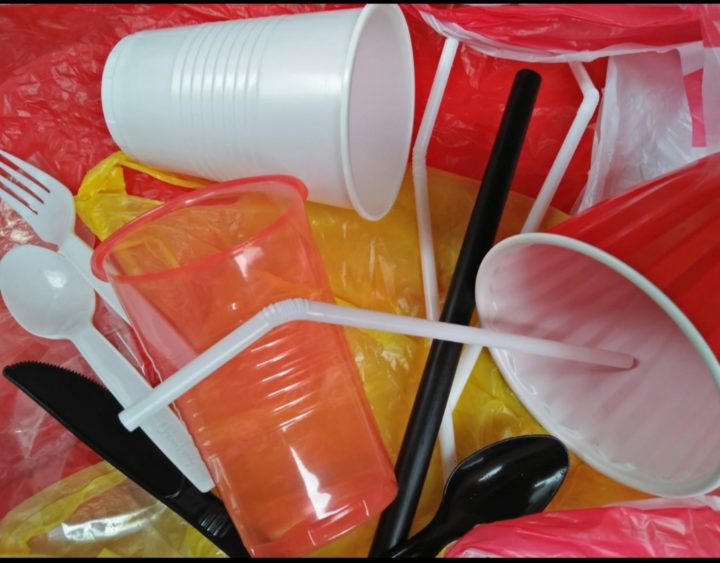13 February 2021, Quezon City. A waste and pollution watchdog group has offered timely advice on Valentine’s Day to lovers of single-use plastics (SUPs): break up or perish.
The EcoWaste Coalition called on Filipinos from all walks of life to break up with SUPs as this toxic relationship with throw-away plastics is threatening the health of the ecosystems, especially the marine environment.
“We can live without SUPs, but we cannot live sans clean oceans where a big chunk of these disposable plastics, along with their chemical additives, gets dumped every minute,” said Patricia Nicdao, Policy Advocacy Officer, EcoWaste Coalition.
“Better quit this toxic relationship before the oceans completely turn into a plastic cesspool,” she emphasized. “For the love of Mother Earth, break up with SUPs and fall in love with ecological alternatives.”
According to studies, around 50 percent of the 380 million tons of plastic produced per year are for single-use, or used for a few minutes and then thrown away like the ubiquitous plastic bags, drinking bottles, cups, sachets, wrappers, cutlery, straws, stirrers, etc.
Every year, some eight to 10 million tons of plastic and their chemical additives are dumped into the oceans and the results are deeply concerning: one million aquatic animals are killed due to plastic pollution, 100 percent of mussels tested are contaminated with microplastics, and that by 2050, experts warn, there will be more plastics than fish in the oceans.
“Breaking up with SUPs has become an essential and ethical choice for consumers amid the growing plastic pollution crisis that is threatening the health of our oceans and humanity and aggravating climate change,” said Nicdao.
To counter the plasticization of the oceans, the EcoWaste Coalition sees the urgency for global and national policy measures that will reduce and control plastic production, and promote plastic-free alternatives that can be reused, recycled or composted.
Locally, the EcoWaste Coalition, Oceana Philippines and other environmental health groups have been pushing the National Solid Waste Management Commission to identify and consequently prohibit non-environmentally acceptable products and packaging (NEAP) with SUPs on top of the list. R.A. 9003, or the Ecological Solid Waste Management Act, requires the commission to issue the NEAP list one year after the law took effect, which was two decades ago in 2001.
To bid adieu to our convenient but toxic relationship with SUPs, the EcoWaste Coalition has advised consumers to start a loving and enduring relationships with ecological alternatives to SUPs, including:
1. Bayong, fabric bags and other reusable bags instead of plastic carry or grocery bags.
2. Tiffin carriers, stainless steel lunch boxes and repurposed bottle jars instead of polystyrene food containers.
3. Water canteens, jugs or flasks, with no lead coatings, in place of plastic water bottles.
4. Washable glasses, tumblers or mason jars in lieu of plastic cups.
5. Glass, porcelain and other lead-free dishware instead of disposable plates.
6. Reusable bamboo and metal straws or, better still, go straw-free and drink straight from the glass or bottle.






